In the Face of environmental and social challenges of the twenty-first century, businesses have a crucial role to play. Far from being mere observers, they can act as pioneers, contributing to the construction of a sustainable future.
In Cool Roof, we have recently made a landmark decision by applying to become a participant on the global Compact of the United Nations (UN), an international commitment, bringing together thousands of businesses around the 17 Sustainable Development Goals (SDGS). On September 17, 2024, Cool Roof has officially become the full member of the French network of the global Compact.
What are the objectives of this approach ? By joining us in the 2100 companies and 100 French associations form part of the French network of the global Compact, we are committed more to achieve these ambitions of the un on our scale thanks to our expertise in cool roofing. Since our small office of the Finistère, and our sites in France, we are convinced of the contributions of our technology to the fight against climate change and social injustice.
In this article, we detail how to these 17 global goals are part of our strategy, explaining both their importance at the international level, and the way in which we, as well as other companies, are implementing these goals daily.
In 2015, the United Nations adopted a set of 17 Sustainable Development Goals, orSDGS, within the framework of theAgenda 2030. This agenda is the fruit of decades of work to promote the development of a more just, sustainable, and inclusive. Each of the SDGS targets a specific aspect of development, such as the fight against poverty (SDGS 1), the promotion ofgender equality (SDGS 5), or the protection of theenvironment (SDGS 13).
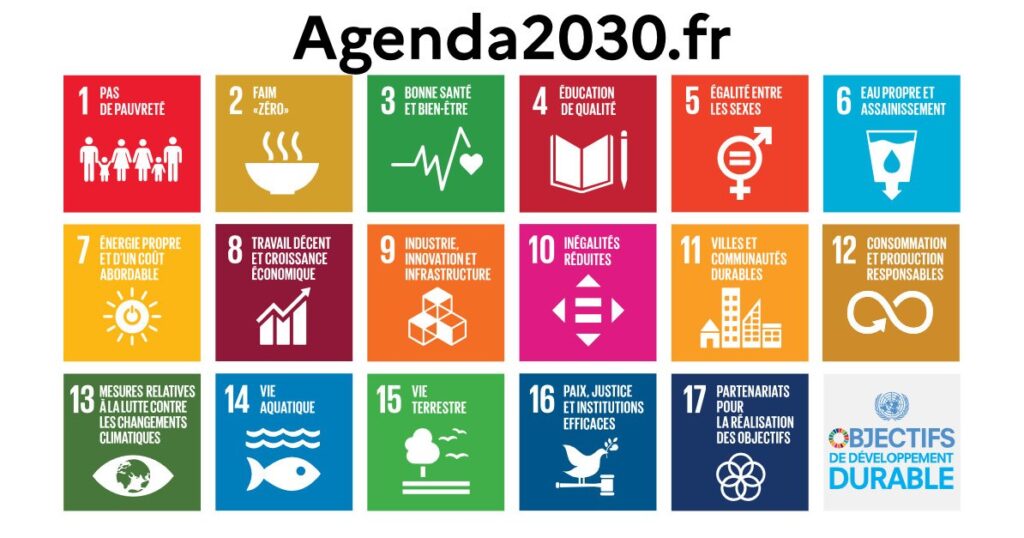
The global Compact of theUN, meanwhile, is a call to companies for whichtheyundertake to comply with the ten principles relating to human rights, labour standards, theenvironment and the fight against corruption. It is a platform that helps companies to integrate the 17 SDGS into their strategies, by providing tools, reports, and forums for the exchange between companies, NGOS and governments.
The 17 SDGS are integrated in the international law and are echoed in many national laws and european. For example, in France, the National Strategy Low-Carbon (SNBC) sets targets for reducing greenhouse gas emissions in accordance with the SDGS 13, dedicated to the fight against climate change. TheParis Agreement signed in 2015, the fundamental framework of the international climate policy, is itself directly related to the SDGS.
In Europe, the Compact Green for Europe, the DSRA and Taxonomy green aim to transform the continent in the first region to be carbon-neutral by 2050. This type of regulation is forcing companies to adjust their business models to meet environmental and social requirements more stringent.
Businesses play a crucial role in the achievement of the SDGS. The UN believes that the realization of these goals by 2030 requires massive investments, both public and private. This is why the commitment of businesses, big or small, is essential to generate the necessary impact on a large scale.
From a strategic point of view, to integrate the SDGS into their business model allows not only to respond to the ever growing expectations of the consumers, but also to differentiate on the market of ever more demanding. The Global Reporting Initiative (GRI), for example, shows that companies with a proactive approach on environmental and social issues and will see their reputation improve, while reinforcing their attractiveness to investors.
The impact of the SDGS in the private sector is quite measurable, both environmentally and economically. According to a report from the Foundation, Ellen MacArthur, the companies that integrate sustainable practices into their business model can increase their profits by 30 % while reducing their CO2 emissions.
Experts in the social sciences, such as the sociologist Marina Fischer-Kowalski, stressed that the SDGS allow you to reorder the social and economic systems around a more equitable development. According to its work, the companies involved in these lenses create positive dynamics that reduce inequities and improve the overall well-being.
In Cool Roof, we have integrated the SDGS into our strategy ofbusiness proactively. Our actions in terms of cool roofing aim is not only to contribute to the ecological transition, but also to have a positive social impact. In particular, our activities are designed to advance seven of the 17 SDGS : the SDGS 3, 8, 9, 10, 11, 12 and 13.
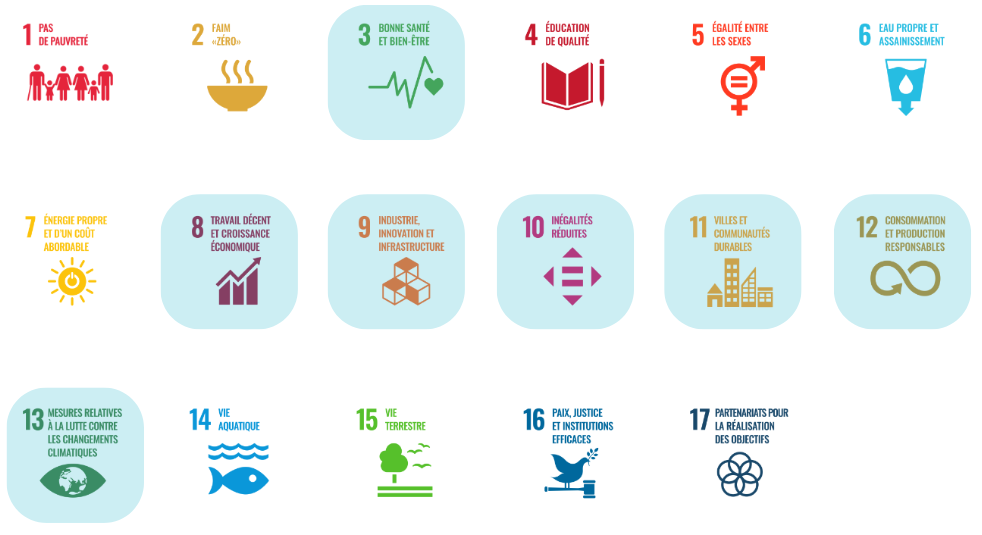
Here are more details :
Climate change, in the heart of theSDGS 13, poses an unprecedented challenge for companies in the construction sector. In Cool Roof, we have become aware of the urgency to act on this front. Our profession of cool roofing, which is to install roof coatings thermo-reflective capable of reducing passively the temperature of buildings, is a direct response to this issue. Reflecting the light and heat of the sun instead of absorbing it, these roofs not only reduce the energy consumption and the greenhouse gas emissions related to air conditioning, but they also help to reduce the effect of urban heat island.
These innovative solutions from the world of entrepreneurship demonstrate that the business engagement in the SDGS 13 is not just a matter of social responsibility, but also an economic calculation cost-effective in the medium and long term. It is, therefore, not only desirable but also profitable for the companies to make a genuine commitment to a future that is more just and more sustainable.
In Cool Roof, we have implemented measures designed to advance the other six of the 17 SDGS : what are the SDGS 3, 8, 9, 10, 11 and 12, in addition to the ODD 13. With a dual mission, Cool Roof contributes actively to the challenge of the United Nations global Compact and the 17 SDGS, both the pan environmental and pan social.
In fact, our first mission is toadapt the human constructions to global warming. To refresh the buildings while reducing the production of greenhouse gas emissions, we have designed a roof coating thermo-reflective. Our product is manufactured in France from oyster shells recycled. In this, we are advancing the SDGS 9, 12, and 13.
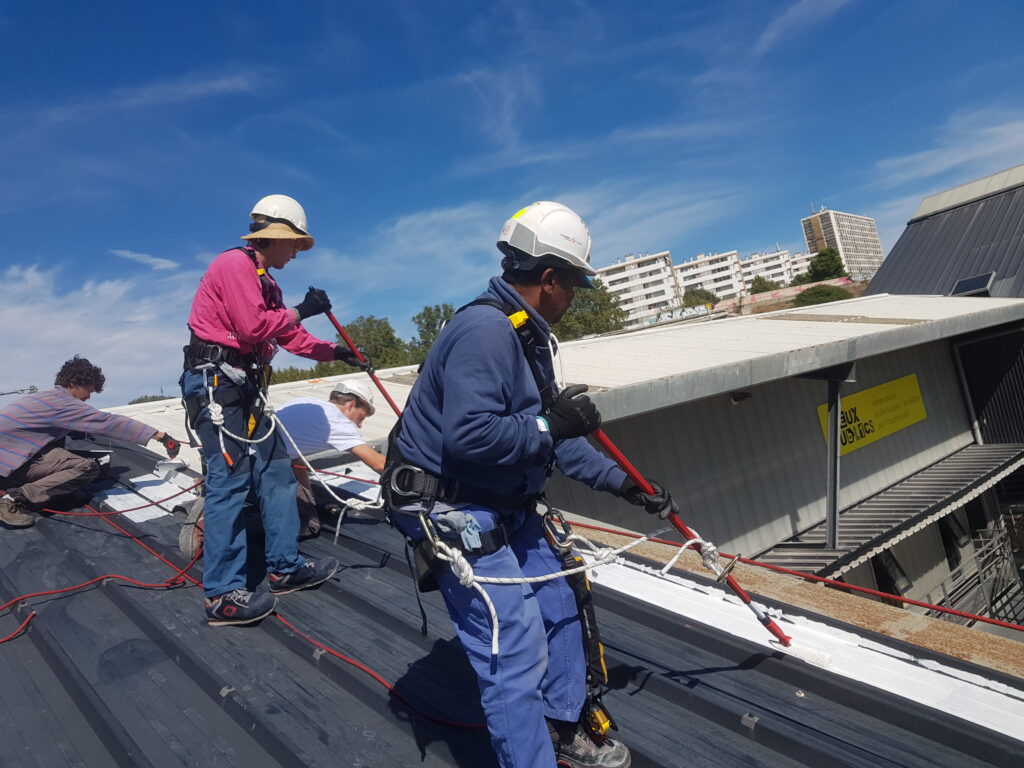
Our second mission is to reconcile this energy transition to social justice. As acompany of the social and solidarity economy (SSE), Cool Roof develops a program of coolroof inclusive in partnership with stakeholders from the insertion by the economic activity in the territories.
Our goal is to anchor the coolroofing locally via SSE actors, and so allow the public away from the job of finding an activity meaningful. By this measure-key, we put our work in the service of the SDGS 8 and 10.
Also, that it is at the heart of the networks to fight against energy poverty (CALLBACK, Cler and TEPOS) or with pilot communities of the ecological transition and energy, Cool Roof tackles the urban heat islands and to the ” kettle heat. ” These units are statistically occupied by public precarious, particularly in the priority areas of the Policy of the City. Beyond the interior comfort, these programs contribute to a decrease in the ambient temperature of the area, from 2 to 5°C according to the international studies.
Our Office of study Materials has also developed a formula of CoolRoof Do It Yourself in free access and natural raw materials. This alternative non-profit was developed in order to propose a solution to the annual little expensive for vulnerable groups and places associative, and popularize the coolroofing as a simple solution, simple, effective, and accessible to all. Thus, we advance the SDGS 3, 10, and 11.
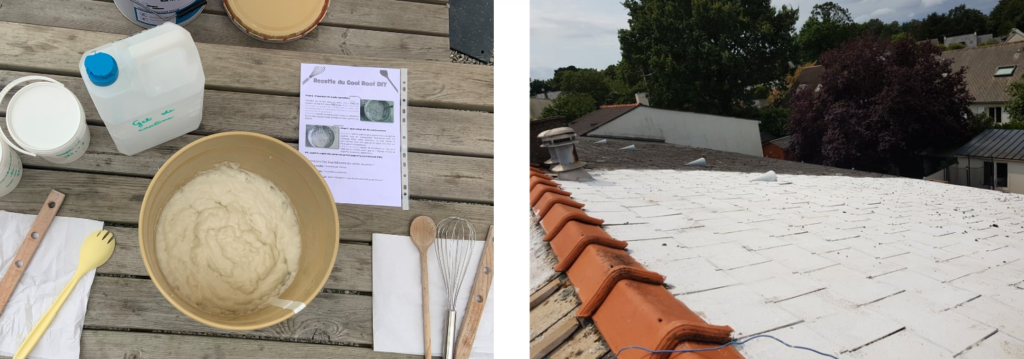
The CoolRoof Do It Yourself : a recipe and an application for all.
Transparency is at the heart of the global Compact. By joining this movement, a Cool Roof is committed to regularly publish reports on its actions, their impact in connection with the SDGS. This transparency is crucial for our customers, but also for all our stakeholders, so thatthey can consider how we contribute to the overall goals, while generating value.
The monitoring of the SDGS is based on clear indicators and tools of reporting , which are used to measure progress. Platforms such as the Carbon Disclosure Project (CDP) or the standards of the Global Reporting Initiative are used by many companies to assess their environmental and social impacts.
In Cool Roof, we are committed to publish every year a Communication on Progress (CoP) identifying the contributions of our company in the implementation of the 10 principles of the un global Compact and the 17 SDGS of the united nations. The public accountability and transparency are at the heart of our values ; we are therefore committed to reporting on our progress, as we are already doing as part of our certification B Corp, in a maximum period of one year from our date of accession to the un global Compact, and annually in accordance with the policy of the UN global Compact Communication on Progress.
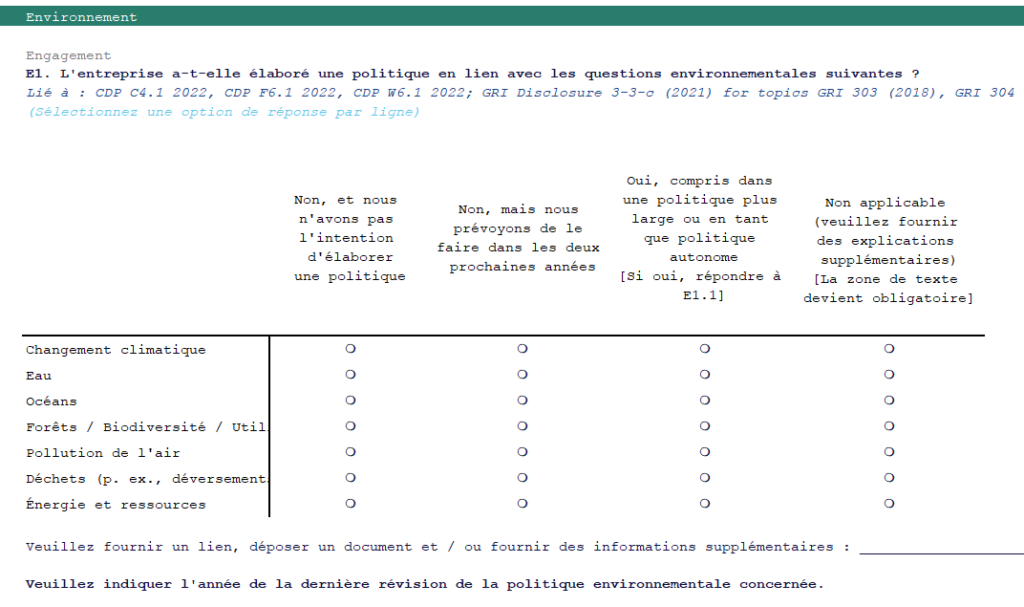
In Cool Roof, we firmly believe that the transition environmental and social justice are not options, but necessities. Every day, we strive to create a value-added environmental and social in the sector of eco-construction. To this day, we are involved in various networks and are recognized by organizations such as the French Tech Team, for the Planet, B Corp, the club Ademe International…
By integrating the French network of the UN global Compact we are committed to continue this effort, to render an account of our progress and inspire other companies to join the movement. For us, this commitment is more than a moral obligation; it is an opportunity to build a better world, more resilient, and more equitable.
It is time for us, professionals as well as individuals, to work together for a better world. Whether in the form of partnerships, associations, public and private communication initiated, of purchasing or simple individual actions in daily life, we can all contribute in our own small way to the fight against climate change and the socio-economic inequalities.
On your marks, ready ? Get involved ! The global Compact network France offers many recommendations and opportunities to companies.
Sustainable Development goals (SDGS) : 17 global goals set by the united nations to promote sustainable development by 2030.
the UN global Compact : international Initiative that encourages companies to adopt responsible business practices, aligned with the 10 principles themselves in agreement with the SDGS.
Cool roofing : roofing Technique roofs to reflect heat to reduce the energy consumption and the greenhouse gas emissions of buildings.
the Effect of urban heat island : A phenomenon where urban areas are warmer than rural areas because of thehuman activity and infrastructure to low-albedo.
Global Reporting Initiative (GRI) : international Standard for sustainability reports of the companies, including the dimensions of environmental, social and economic.
The global Compact is an international initiative that encourages businesses to adopt responsible practices in the field of human rights, labour, environment and anti-corruption.
By integrating the SDGS in their strategy, companies can adjust their business models to be more sustainable, reduce their environmental impact and have a positive social impact.
Join the global Compact allows companies to engage in a process of transparency and accountability, by regularly publishing reports on their environmental and social impact.
Companies can use reporting tools, such as the CDP, the Global Reporting Initiative (GRI), or the indicators of the Sustainability Accounting Standards Board (NCNB). In Europe, the DSRA (Corporate Sustainability Reporting Directive) requires the companies to publish annual reports, sustainability by 2025 on their environmental, social and governance.